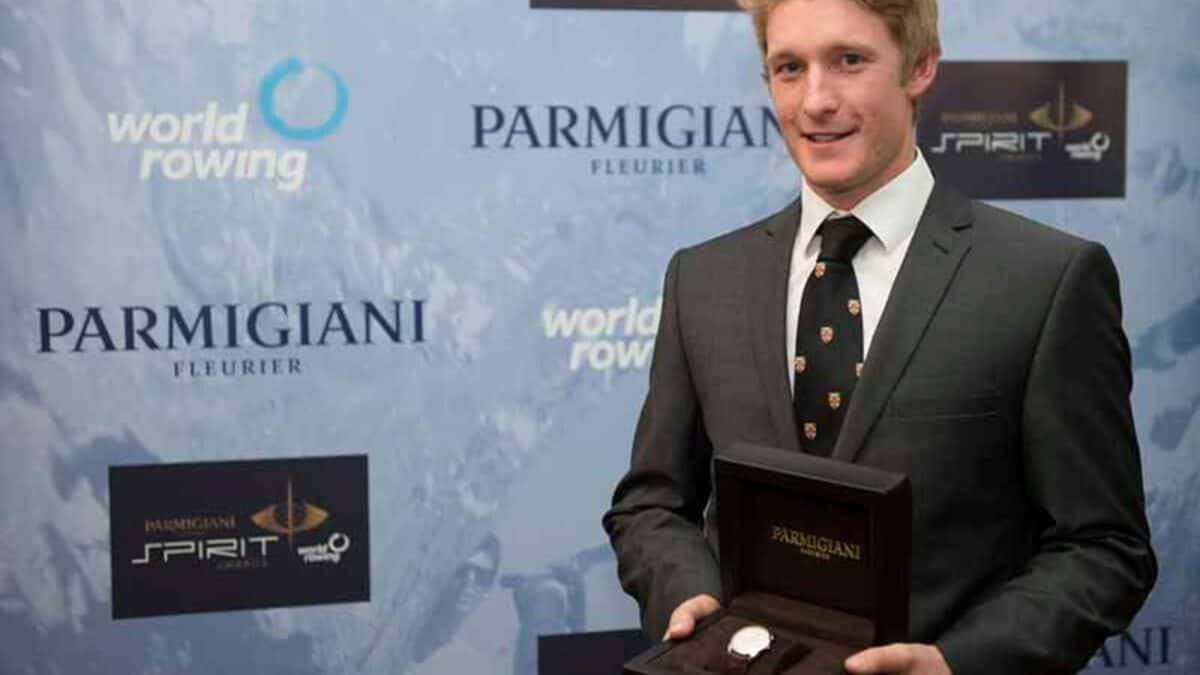
16 Apr 2019
What happened to… James Cook
James Cook was the first winner of the Parmigiani Spirit Award (which later became the Filippi Spirit Award). Cook was first profiled on World Rowing in 2013, when he was nominated. At that time, he was busy studying engineering at the University College London (UCL) and rowing for the University College London Boat Club (ULBC). In an in-depth interview with World Rowing, Cook cited balance as the key to his success.
“When I first started at university, I spoke to my head of department. He told me, ‘you’ve got 24 hours in a day: eight hours for sleeping, eight hours for rowing and eight hours for working.’ It’s always in the back of my mind. You’ve got to be strict and self-disciplined. But when you strike the balance well, you feel like you’re excelling in everything, you feel on top of the world,” Cook said.
Six years later, little has changed. Cook finished his Bachelor degree in 2014 and went on to do a Masters in Engineering at the University of Oxford. His time at Oxford was split between intense studying and racing the renowned Boat Race. But Cook did not stop there. At graduation, the wheels were already in motion for his own company: Hexo Helmets.
“It’s the first custom-made helmets that fit perfectly and use a different structure designed to significantly improve safety compared with foam material,” Cook says. In the next five to ten years, Cook plans to “revolutionise the head protection market.”
Even though Cook says he spends 99.9% of his time working on his company, he still manages to stay active. “I’m really enjoying cycling,” he says. And then adds nonchalantly, “looking to start racing on the track.” Cook is just not able to do anything halfway. But life without rowing is different.
“It is now more about finding a new lifestyle balance that involves different experiences, but still getting the devotion and focus which I loved in rowing,” Cook says. He will always carry with him the memories from his years in the rowing world.
“I was 12 years-old and steering a double at a local town regatta. I was a year younger than the competition and smaller than most girls my age: the opposition seemed liked Goliath. It was neck-and-neck to win the regatta and we were being consistently pushed off our lane. A few hundred metres from the finish I twisted my foot and sent our bow ball curling towards the other boat. By pushing them off our lane, they lost their composure and timing, and we just got our canvas in front. I learnt a lot in that race: composure, opportunities and enjoying the pure racing,” Cook says. He has certainly applied these principles to his everyday life.

